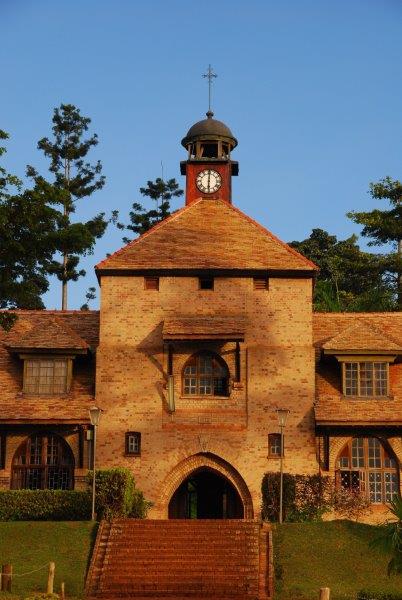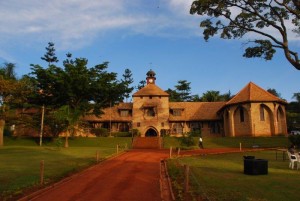The following first appeared in the June 4, 2013 edition of the AAC’s International Update. Sign up for this free email here.
Bishop Tucker College Makes 100
By The Rev. Prof. Stephen Noll
The year 2013 marks the centenary of Bishop Tucker Theological College in Mukono, Uganda. A number of celebrations are planned, including special celebrations on Martyrs’ Day June 3, a national holiday commemorating the death of about 45 Roman Catholic and Anglican martyrs in 1886.
The martyrs’ blood became the seed of the flourishing of Christianity that followed in Uganda. In 1890, missionary bishop Alfred Tucker arrived in Uganda from England, succeeding the martyred Bishop Hannington. Tucker brought with him the vision of the “Native Anglican Church” as a self-governing indigenous church. Critical to the planting of such a church was education for its people, and so the Church under Tucker founded high schools for girls and boys and promoted theological training, which led to the founding of the work at Mukono in 1913.
Although the first educational buildings at Mukono were grass-roofed, the College, named in memory of Bishop Tucker, moved into beautiful new quarters in 1925, to this day a marvel of engineering and construction. The first academic program was established for clergy and teachers, staffed primarily by missionaries who taught in the local language.
The East African Revival brought renewal and controversy to the Church and the College, climaxed by the expulsion of some of the most prominent Revival students in 1944. The wounds were healed during the tenure of John V. Taylor, later General Secretary of Church Mission Society and Bishop of Winchester. Taylor staged and photographed passion plays in Lent and constructed an “ordinands’ village” where wives could receive some basic training for their future parish work.

With independence in 1963, African principals were appointed, many of whom went on to become bishops; indeed a large proportion of bishops in East Africa have studied in Mukono. Women began to study also at Mukono in the 1960s at first in a separate program but more recently in all the theology courses. The current Dean of the theological faculty is the Rev. Dr. Olivia Nassaka Banja.
After surviving the chaos and persecution of the Amin-Obote era, the Church of Uganda set a new direction for the work at Mukono, deciding in 1996 to convert the college into a University. In October 1997, Uganda Christian University opened its doors, with students enrolling in courses in humanities and social sciences, law, nursing and science and technology. The numbers have increased steadily until in 2013 the University had about 12,000 students on four different campuses.
The theological faculty continues as the Bishop Tucker School of Divinity and Theology, with about 180 students taking bachelor’s, master’s and a few doctor’s level courses. Some have feared a loss of Christian identity and a dilution of clergy formation with the advent of the University. However, Uganda Christian University is itself an unashamedly Christian institution, requiring foundation courses in Bible, Christian worldview and ethics of all students and with a dynamic chaplaincy. God has presented the Bishop Tucker faculty with a missionary opportunity to equip the saints for the work of lay ministry.
Jesus challenged his disciples saying: “Every scribe who has been trained for the kingdom of heaven is like a master of a house, who brings out of his treasure what is new and what is old” (Matthew 13:52). As we celebrate the 100-year history of Bishop Tucker College, we also recognize a new call to train up a new generation of disciples and leaders for East Africa.
Prof. Noll served as the first Vice Chancellor of Uganda Christian University from 2000-2010.


